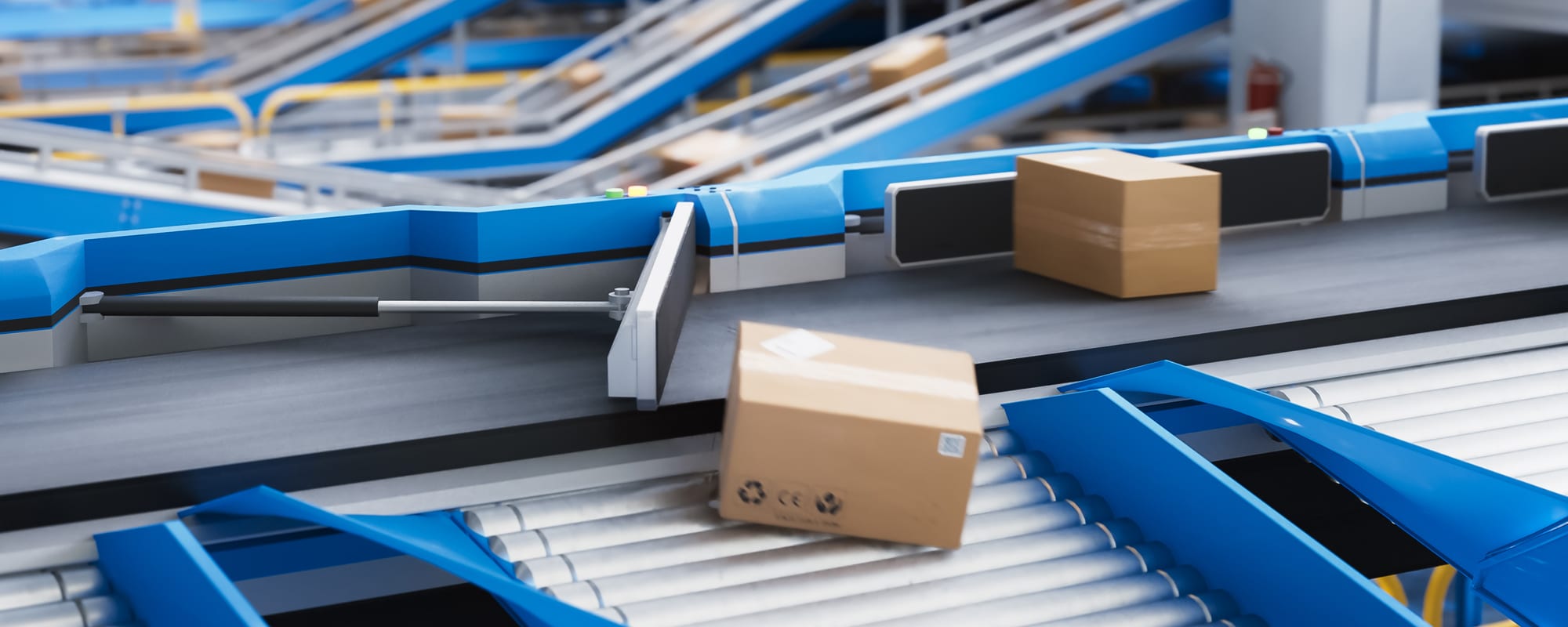The final installation of our four-part series celebrating Manufacturing Day 2024 features an interview with Abe Fares, OEM Area Sales Manager – Gulf Regionat Eaton, who shares expert insights into the modern manufacturing industry and, in the spirit of the initiative, aims to shift its perceptions and help close the skills gap impacting its continued success.
This year, as part of our efforts to raise awareness of Manufacturing Day and Month, shift the perceptions of students, educators, parents, community leaders, and influencers, and help create long-term solutions for the skilled labor shortages impacting every sector of the industrial manufacturing industry, we interviewed four representatives with firsthand knowledge:
- Frank Latino, Global Product Manager – Electric Automation at Festo, and Daniel Rodriguez, Sales Director for Festo Didactic North America
- Barry Turner, Technical Business Development Manager at Red Lion Controls, Inc.
- Abe Fares, OEM Area Sales Manager – Gulf Region, Eaton
In this installation, we speak to Abe Fares, OEM Area Sales Manager – Gulf Region. Eaton has more than 100 years of experience in electrical power management and the expertise to see beyond today, which allows the company to offer end-to-end solutions that satisfy the various demands of industrial infrastructure ranging from legacy equipment to cutting-edge. Its proven technologies improve safety, increase productivity, ensure compliance, and help reduce energy consumption in support of creating a more sustainable world.
To view the other experts’ insights, click the links embedded in the supplier names bulleted above.

Abe Fares, OEM Area Sales Manager – Gulf Region at Eaton
Abe Fares is the OEM area sales manager for the Gulf region at Eaton. He has more than 20 years of business development, sales, and sales management experience in the electrical industry, as well as an MBA from Wayne State University. Abe is also a dynamic, accomplished, and results-oriented leader. His strengths include building new market share, driving strong and sustainable revenue growth, and managing large and complex customer accounts.
1. What do you find most exciting about the rapidly evolving manufacturing industry, and how does it feel to be a part of the fourth industrial revolution or Industry 4.0?
There are several aspects of the rapidly evolving manufacturing industry that we at Eaton find exciting, especially as we embrace the fourth industrial revolution.
Advanced Automation and Robotics
- Efficiency and Precision: The integration of advanced automation and robotics enhances manufacturing efficiency and precision, reducing errors and increasing productivity.
- Collaborative Robots (Cobots), which work alongside human workers to improve safety and efficiency on the factory floor.
The Industrial Internet of Things (IoT)
- Smart Manufacturing: The IIoT and our IIoT-enabled products enable smart factories with interconnected networks of machines and systems. These devices pave the way for real-time monitoring, data collection, and predictive maintenance, and we use them in our own facilities to help optimize our manufacturing processes.
- Data-Driven Decisions: The vast amount of data generated by IIoT devices helps users make better-informed decisions, optimize processes, and improve product quality.
Artificial Intelligence (AI) and Machine Learning
- Predictive Analytics: AI and machine learning algorithms can predict equipment failures before they occur, reducing downtime and maintenance costs.
- Enhanced Product Design: AI-driven design tools enable Eaton to create more innovative and efficient products.
2. What do you find most challenging about the rapidly evolving manufacturing industry, and how is your organization working to overcome those challenges?
Eaton, like many companies in the manufacturing industry, faces several challenges due to rapid technological advancements and market changes, including:
- Digital Transformation: Integrating new technologies — such as IIoT, AI, and machine learning technologies — into existing systems can be complex and costly.
- Sustainability: There is increasing pressure to adopt sustainable practices and reduce carbon footprints.
- Workforce Skills Gap: The rapid pace of technological change requires a workforce with new and advanced skills.
- Cybersecurity: As manufacturing becomes more digitized, the risk of cyberattacks increases.
To overcome these challenges, Eaton is investing in:
- Technology: Eaton invests in cutting-edge technologies to enhance efficiency and productivity. This includes smart manufacturing and automation solutions.
- Sustainability Initiatives: Eaton is committed to reducing its environmental impact through energy-efficient products and sustainable manufacturing processes.
- Training and Development: Eaton provides continuous training programs to upskill employees and attract new talent with the necessary expertise.
- Enhanced Cybersecurity Measures: Eaton implements robust cybersecurity protocols to protect sensitive data and ensure the integrity of our manufacturing processes.
3. What major changes do you expect to see in the industry over the next 5–10 years?
- Increased Electrification: As the world moves towards more sustainable energy solutions, there will be a significant increase in electrification across various sectors, including transportation, buildings, and industrial processes.
- Renewable Energy Integration: The integration of renewable energy sources, like solar and wind power, into the power grid will continue to grow and will require advanced energy storage solutions and smart grid technologies to manage the variability of these energy sources.
- Digitalization and the IIoT: The adoption of digital technologies and the IIoT will continue to accelerate and enable more efficient energy management, predictive maintenance, and real-time system monitoring processes.
- Energy Storage Advancements: There will be significant advancements in energy storage technologies, such as batteries and supercapacitors, to support the increased use of renewable energy and provide reliable backup power.
- Sustainability and Decarbonization: Companies will focus more on sustainability and reducing their carbon footprint by embracing energy-efficient technologies, reducing waste, and implementing circular economic principles.
- Smart Cities and Infrastructure: The development of smart cities will drive the need for intelligent infrastructure that can efficiently manage energy, water, and other resources.
- Electric Vehicles (EVs): The adoption of electric vehicles will continue to rise, leading to increased demand for EV charging infrastructure and innovations in battery technology.
- Cybersecurity: As the energy sector becomes more digital, the importance of cybersecurity will grow to protect critical infrastructure from cyber threats
4. How does your organization’s work as a manufacturer contribute to other key industries that impact people’s everyday lives? What kinds of end products do you enable that consumers might not connect with you but wouldn’t be able to enjoy without you?
Eaton’s work as a manufacturer directly impacts a variety of key industries and contributes to a wide variety of end products and services that people use every day, often without realizing Eaton’s involvement. Our focus on innovation, efficiency, and sustainability helps improve the quality of life for people around the world.
For instance, Eaton products make a difference in the:
Automotive Industry
- Electric Vehicles (EVs): Eaton supplies several critical components used in EVs, including power electronics and battery management systems essential to the performance and efficiency of electric cars.
- Vehicle Safety Systems: Eaton’s hydraulic and electrical components are used in braking and steering systems to enhance vehicle safety and reliability.
Aerospace Industry
- Aircraft Systems: Eaton supplies hydraulic, fuel, and electrical systems critical for the safe and efficient operation of commercial and military aircraft.
- Aerospace Components: Eaton products are also integral to the functioning of various aircraft systems, ranging from landing gear to flight controls.
Healthcare Industry
- Medical Equipment: Eaton’s power management solutions ensure the reliability of critical medical devices and systems, such as MRI machines and patient monitoring equipment.
- Hospital Infrastructure: Eaton provides backup power solutions and electrical distribution systems that help keep hospitals running smoothly, even during power outages.
Data Center and IT Industry
- Power Management: Eaton’s uninterruptible power supplies (UPS) and power distribution units (PDU) are essential for maintaining the uptime and reliability of data centers.
- Energy Efficiency: Eaton solutions also help data centers reduce energy consumption and improve efficiency, supporting the growing demand for cloud services and digital infrastructure.
Renewable Energy Industry
- Solar and Wind Power: Eaton manufactures inverters, energy storage systems, and other components that are vital for safety and reliably harnessing and distributing renewable energy.
- Grid Integration: Eaton’s smart grid technologies help ensure the stability and reliability of renewable energy sources integrated into the power grid.
Industrial Manufacturing Industry
- Automation and Control: Eaton’s automation and control products improve the efficiency and productivity of manufacturing processes.
- Energy Management: Eaton solutions also help industrial facilities reduce their energy consumption, costs, and environmental impact.
Consumer Electronics Industry
- Home Appliances: Eaton components are found in many household appliances, including refrigerators, washing machines, and HVAC systems, and help contribute to their efficiency and reliability.
- Lighting: Eaton’s lighting solutions provide energy-efficient and reliable illumination in a variety of commercial and industrial environments.
5. Why should students and young professionals consider a career in manufacturing?
Industry 4.0 is fueling a continuous need for innovation, which makes it a very exciting time to be in manufacturing centered jobs. It has also opened a wide range of opportunities for growth and development within the manufacturing field.
Manufacturing jobs provide opportunities for high-reward working environments in high-performance cultures. At Eaton, we’re continously working to solve some of the toughest challenges on the planet, and our Early Talent Programs offer an exciting world of opportunities for young people to make a difference on a global scale.
6. When people think about manufacturing jobs, they often think about machine operators or maintenance personnel. What are some other, lesser known but equally vital manufacturing jobs that students and young professionals should know about?
There are so many roles in the manufacturing process that are not necessarily front of mind when young professionals are considering career opportunities. Roles like supply chain analysts, industrial engineers, quality assurance (QA) specialists, and data analysts are all vital careers in the manufacturing world.
7. Another thing that often comes to mind when people think about the manufacturing industry is pollution. The manufacturing and construction industry is currently the world’s third-largest source of greenhouse gas emissions and, as such, has an important role to play in global sustainability efforts. What is your organization doing to reduce its environmental impact and support sustainability throughout the global supply chain?
Eaton’s goal is to reduce our greenhouse gas emissions from our operations by 50% from 2018 levels. We have already implemented various processes and policies that have decreased our greenhouse gas emissions by 31%, certified 79% of our manufacturing sites as zero-waste-to-landfill facilities — closing in on our 2030 goal of 100%, and already exceeded our 2030 target of certifying 10% of our sites as zero-water-discharge facilities. These achievements are the result of extensive research and development investments designed to creating sustainable solutions within our manufacturing processes.
8. Why should people consider joining your manufacturing workforce?
Joining Eaton’s manufacturing workforce means being part of a company that values its employees, fosters a high-performance culture, promotes continuous improvement, and offers numerous opportunities for growth and development. It’s an exciting and rewarding environment for anyone looking to make a meaningful impact in the manufacturing industry.
Dive Deeper
To learn more about Eaton and the Eaton product solutions available at RS, click the links embedded here. For more expert insights from Eaton, check out their contributions to the RS Expert Advice Series.
To learn more about the incredible impact that the American manufacturing industry has on the U.S. economy and the history of National Manufacturing Day, check out the first installation of this four-part series, “National Manufacturing Day Part 1: History and Impact.” For more expert insights into the modern manufacturing industry, click the bulleted links at the beginning of this article to access our Festo and Red Lion interviews.







